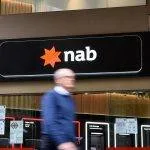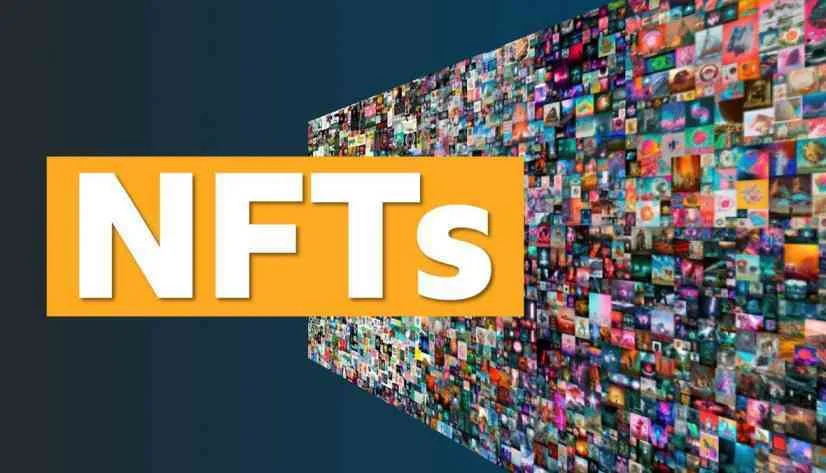The rise of NFT domain names and how they’re affecting businesses
The fanfare over non-fungible tokens (NFTs) came after a digital artist known as Beeple sold a piece of digital art for a record $69 million earlier this year.
The sale of these valuable digital assets generated a staggering $2.5 billion in the first half of 2021 alone. And the trend is no longer limited to just works of art, with NFT domain names also being included.
As the value placed on website domain names increases, threats such as URL hijacking and other related cyber attacks are becoming more and more common. This leaves experts wondering if the NFT craze is nothing more than a bubble waiting to burst.
With a seemingly limited understanding of NFTs across the board, Mark Franks, UI and Experience Manager at names.co.uk explores the complex topic of NFTs and what it could potentially mean for domain names. company
As of the 10/10/2021 the most expensive NFT artwork in the world is still Beeple’s Everydays: The First 5000 Days: a collage of 5000 images measuring 21,069 x 21,069 pixels, bought at Christie’s for over $ 69.3 million by a Singapore-based programmer.
What is a NFT
A non-fungible token – or better known as an NFT – is a way to track a unique digital medium and increase its value. It is essentially a digital version of a tangible collectible that is usually stored in a digital wallet or blockchain.
In the same way that you would collect physical art, a buyer could collect the required digital files from online content.
Non-fungible simply means one of a kind. For example, money is inherently fungible. You can exchange money in different forms, and it keeps the same value. Unique or limited number products, such as circulating art and collectibles, are by definition non-fungible.
Although this is a booming market, the volatile nature of NFT valuation lends itself to increased risk for content creators and sellers.
NFT domain names surge
The concept of NFT trading on blockchain to transfer ownership of digital art is starting to take hold in other areas of digital life.
Domain names are increasingly considered expensive and are quickly becoming a commodity in the NFT market. For example, the domain “win.crypto” recently broke the record for blockchain domains selling for $ 100,000.
Because domain names are the digital foundation of a business – and a clean, professional and recognisable domain inherently boosts reputability from the get-go – they can sell for significant sums.
Websites are the gateway to content that billions of internet users can access at the click of a button, so memorable and relevant domain names on the NFT market will no doubt spur long-term business growth.
Since domain names are the digital foundation of a business – and a clean, professional, and recognizable domain inherently boosts reputation right from the start – they can sell for significant sums.
Websites are the gateway to content that billions of internet users can access with one click, so memorable and relevant domain names on the NFT market will undoubtedly spur long-term business growth.
Blockchain domains rise
The sudden growth in the value of assets hosted on the blockchain is giving rise to new issues regarding websites and may even fundamentally change the way we approach website building.
There are growing concerns that blockchain domains and decentralised website development pose threats to personal and work security.
Due to their growing popularity, these channels are being used for malicious purposes – that is, developing and spreading malware. Furthermore, blockchain domains inherently lend themselves to anonymity and censorship by design, which means they are the ideal breeding ground for committing malicious acts.
However, as NFTs and blockchain domains and their URLs operate across the blockchain, this could mean that NFTs become the de facto way to engage in domain-related transactions – increasing the risk for online operators
What are NFT domain names?
Non-fungible tokens, known as NFTs, are rekindling a tech trend of the late 1990s: the short, sexy domain name. Similar to the “.com” web craze, the latest fever in cryptocurrency markets has buyers harvesting blockchain domain names, which are minted and sold as NFTs
NFT culture can pose risk to domain names
With domain names – and blockchain domain names – proven to have long-term value, there are always opportunistic cyber criminals hunted down for the most popular assets.
Domain names often fall victim to a phenomenon known as “drop catching”. This is where people track (either manually or with software) the domains they want and buy them at the precise moment the registration deadline ends – effectively denying the company access to its own material.
While technically not a crime under certain circumstances, drop catching or typo has the potential to ruin companies financially. For small businesses without the cash resources to repurchase a domain or the legal means to thwart a URL hijacking, the results can be devastating.
Companies need to be vigilant in controlling the expiration dates of their domains. Most domain providers monitor the condition of your domain and automatically remember and renew them. Be sure to check with your domain provider so you don’t risk having your company’s domain name stolen.
Will NFTs be the future?
The debate around the NFT continues. Proponents of the new trend suggest that it has scope for broader purposes, such as converting financial documents into NFTs. On the other hand, critics say it is just a fad – and that the NFT bubble will inevitably burst.
The data suggests the bubble is already collapsing. In recent months, activity in the NFT area has clearly decreased. Transaction volume in the NFT markets has dropped 95 percent since early May – falling from a staggering $170 million to a relatively paltry $19.4 million.
One of the emerging questions regarding NFTs and their survival is whether they can retain their long-term value.
Limited to the artistic and creative spheres, NFTs seem to maintain their value only if the buzz around the NFT remains high – as their value is driven by speculation and the perception of under-delivery.
This is no more evident than in the price of NFT ‘CryptoKitty no.18’, which dramatically jumped in value in just three days in 2017, showing that creating a buzz around any digital asset can cause a spike in value.
However, industry skeptics say that speculating an NFT price is undermining market traditions and that you essentially own assets over which you have no control.
Despite the potential for a radical change in the way we digital trade, the recent volatile NFT trading performance in the investment market means it could be more of a bubble than a specific investment strategy.
Importance of Domain Names in the NFT Industry
Domain names are digital real estate on which we build our business. They provide clients with access to us through the portal. Domains have never been more valuable or important than they were in 2021.
The growth of e-commerce in the US goes hand in hand with the increase in NFT sales. There are 4.27 billion Internet users in the world, and each of them provides access to a website.
This is true for domain names in the NFT industry. With a memorable NFT domain name, this digital property will become a destination for NFT buyers and sellers.
Also, a domain name shares many characteristics with NFT. Each one of them is unique, non-fungible and with proven properties.
Characteristics of NFT’s include
- Each non-fungible token has a unique identifier
- Each token has a creator and an owner. It’s easy to verify yourself as a creator or owner.
- NFTs are not interchangeable with other tokens. Each is completely unique.
- NFTs are based on Ethereum.
- They can be sold in an NFT marketplace like Ethereum or sold consumer to consumer.
NFTs should not be confused with a fungible token such as the Bitcoin cryptocurrency. Bitcoin is a digital currency with no central bank or single administrator.
It can be sent from user to user over the bitcoin network without an intermediary. Moreover, there is no difference between two Bitcoins, they are like two US dollar bills. Interchangeable, physically identical and worth the same.
NFT’s and Domain Names
As interest in NFT investments grows, there will be more and more websites that will transact NFTs. This leads to an increased need for NFT-related domain names.
Domain company Donuts reported a huge increase in domains with NFTs in March and April in 2021 in its monthly market report on trending keywords.
Some of these domain names were registered by investors, but some buyers were companies that sell NFTs. Common keywords for NFT-related domain names include NFT, NFT’s, NonfungibleTokens, NonfungibleToken, as well as hyphenated versions, non-fungibleToken and non-fungibleTokens.
For example, in our estimation, it looks like NFT.com, and NFT has changed hands. Saw.com would assume that if they were trading they were selling for millions of dollars, if not over 10,000,000 each.
To enter the NFT space, it is not necessary to have a domain containing the letters NF and T.
Amanda Waltz recently co-negotiated the sale of Candy.com. Candy is currently used as an NFT site.
In addition, a close friend of Saw.com is launching the NFT website at NFT.net. We wish the site good luck and hope for success!







